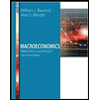Q2. Home signs a free-trade agreement with Foreign, which lowers tariffs and other barriers to trade. Both countries are very similar in terms of economic shocks, as they each produce very similar goods. Use the graph to discuss the following questions- Symmetry of shocks FIX Market Integration a. Initially, trade rises. Does the rise in trade make Home more or less likely to peg its currency to Foreign's currency? Why? b. In the longer run, freer trade causes the countries to follow their comparative advantage and specialize in producing very different types of goods which can experience difference production shocks. Does the rise in specialization make Home more or less likely to peg its currency to the foreign currency? Why?
Q2. Home signs a free-trade agreement with Foreign, which lowers tariffs and other barriers to trade. Both countries are very similar in terms of economic shocks, as they each produce very similar goods. Use the graph to discuss the following questions- Symmetry of shocks FIX Market Integration a. Initially, trade rises. Does the rise in trade make Home more or less likely to peg its currency to Foreign's currency? Why? b. In the longer run, freer trade causes the countries to follow their comparative advantage and specialize in producing very different types of goods which can experience difference production shocks. Does the rise in specialization make Home more or less likely to peg its currency to the foreign currency? Why?
Principles of Economics 2e
2nd Edition
ISBN:9781947172364
Author:Steven A. Greenlaw; David Shapiro
Publisher:Steven A. Greenlaw; David Shapiro
Chapter29: Exchange Rates And International Capital Flows
Section: Chapter Questions
Problem 25CTQ: If a countrys currency is expected to appreciate in value, what would you think will be the impact...
Related questions
Question

Transcribed Image Text:Q2. Home signs a free-trade agreement with Foreign, which lowers tariffs and other barriers to
trade. Both countries are very similar in terms of economic shocks, as they each produce very
similar goods. Use the graph to discuss the following questions-
Symmetry
of shocks
FIX
Market Integration
a. Initially, trade rises. Does the rise in trade make Home more or less likely to peg its
currency to Foreign's currency? Why?
b. In the longer run, freer trade causes the countries to follow their comparative advantage
and specialize in producing very different types of goods which can experience difference
production shocks. Does the rise in specialization make Home more or less likely to peg
its currency to the foreign currency? Why?
Expert Solution
This question has been solved!
Explore an expertly crafted, step-by-step solution for a thorough understanding of key concepts.
Step by step
Solved in 2 steps

Recommended textbooks for you

Principles of Economics 2e
Economics
ISBN:
9781947172364
Author:
Steven A. Greenlaw; David Shapiro
Publisher:
OpenStax

Macroeconomics: Principles and Policy (MindTap Co…
Economics
ISBN:
9781305280601
Author:
William J. Baumol, Alan S. Blinder
Publisher:
Cengage Learning

Macroeconomics: Private and Public Choice (MindTa…
Economics
ISBN:
9781305506756
Author:
James D. Gwartney, Richard L. Stroup, Russell S. Sobel, David A. Macpherson
Publisher:
Cengage Learning

Principles of Economics 2e
Economics
ISBN:
9781947172364
Author:
Steven A. Greenlaw; David Shapiro
Publisher:
OpenStax

Macroeconomics: Principles and Policy (MindTap Co…
Economics
ISBN:
9781305280601
Author:
William J. Baumol, Alan S. Blinder
Publisher:
Cengage Learning

Macroeconomics: Private and Public Choice (MindTa…
Economics
ISBN:
9781305506756
Author:
James D. Gwartney, Richard L. Stroup, Russell S. Sobel, David A. Macpherson
Publisher:
Cengage Learning

Economics: Private and Public Choice (MindTap Cou…
Economics
ISBN:
9781305506725
Author:
James D. Gwartney, Richard L. Stroup, Russell S. Sobel, David A. Macpherson
Publisher:
Cengage Learning


Managerial Economics: Applications, Strategies an…
Economics
ISBN:
9781305506381
Author:
James R. McGuigan, R. Charles Moyer, Frederick H.deB. Harris
Publisher:
Cengage Learning